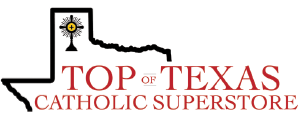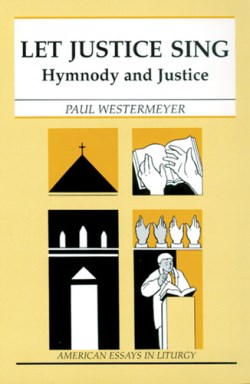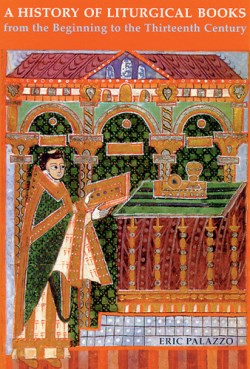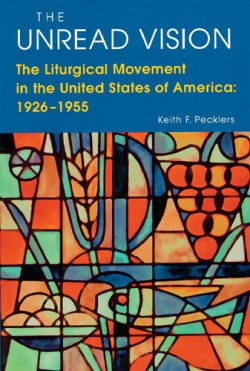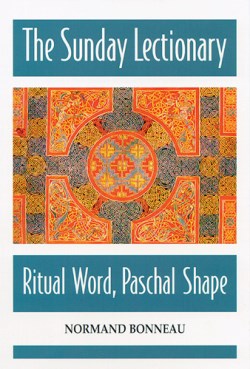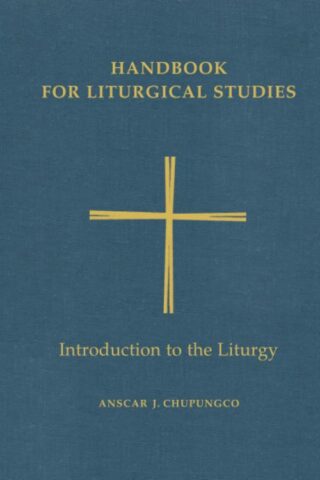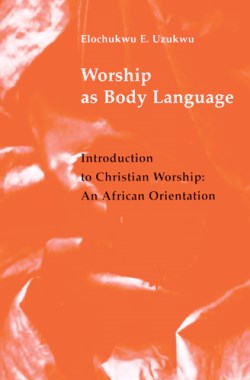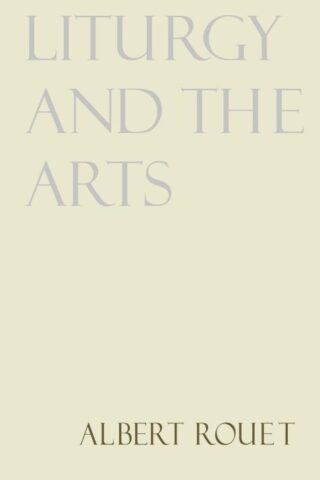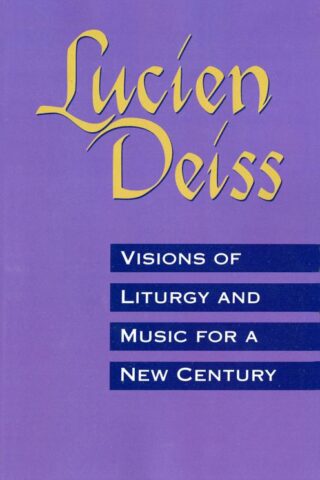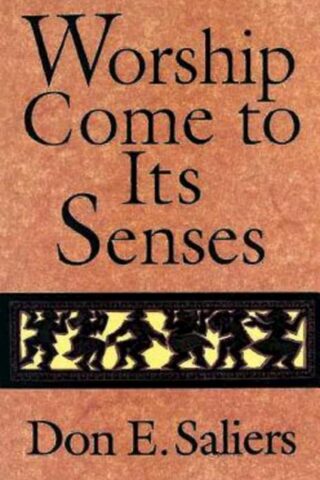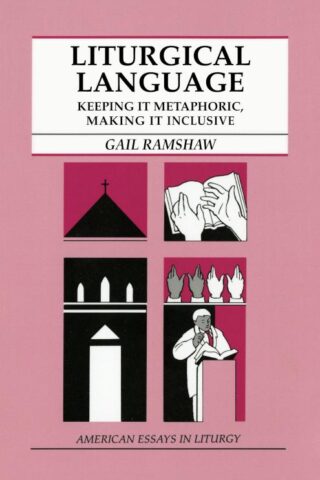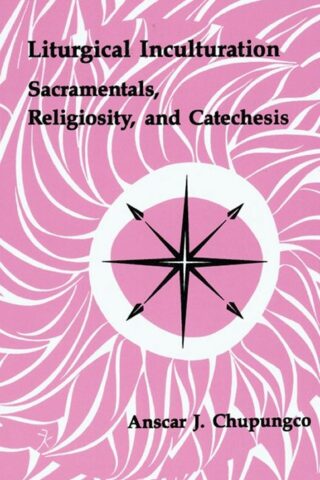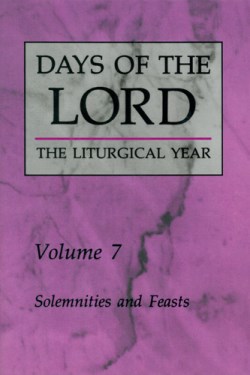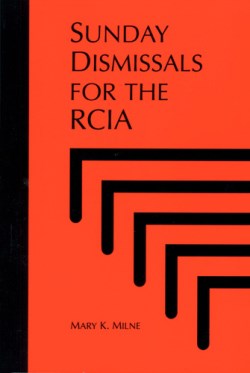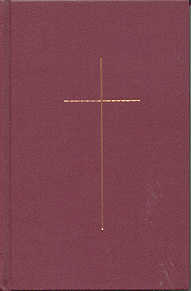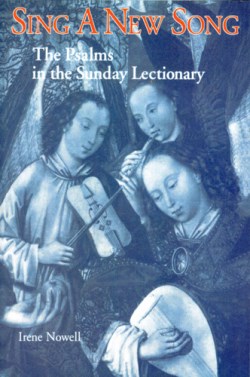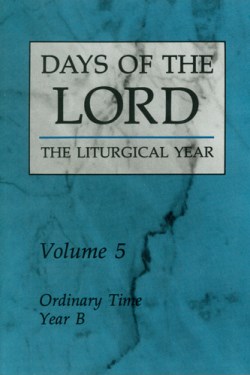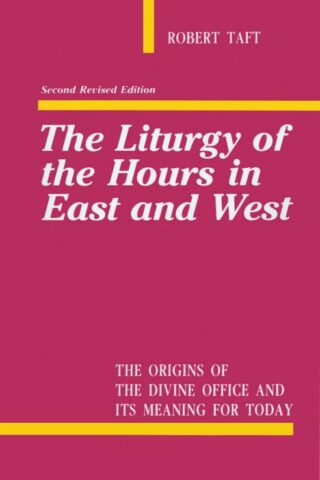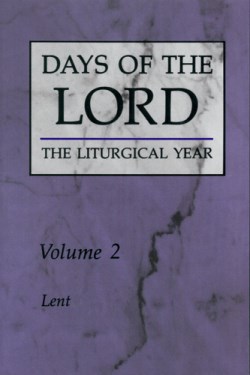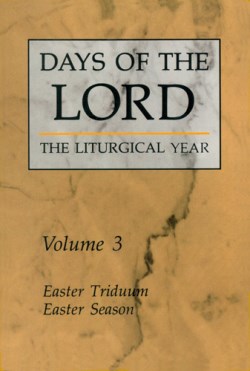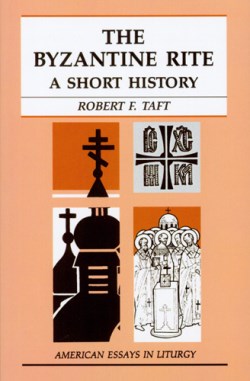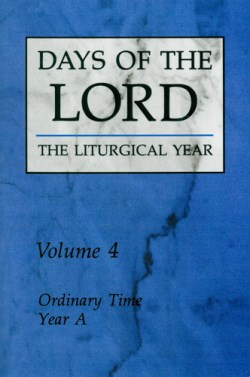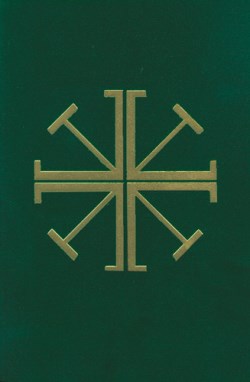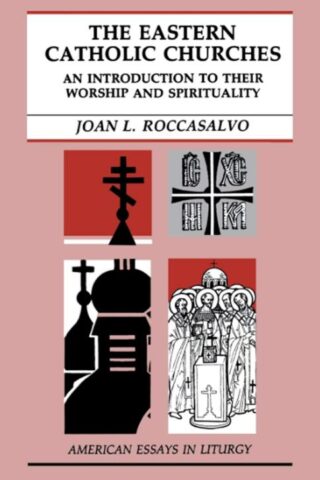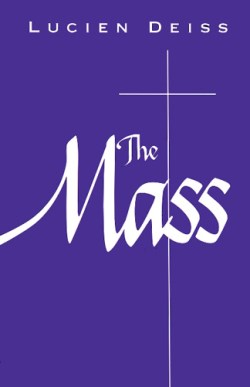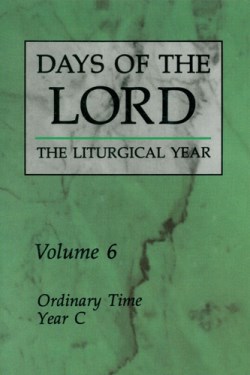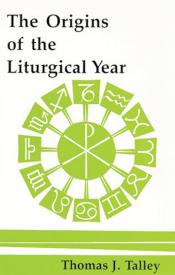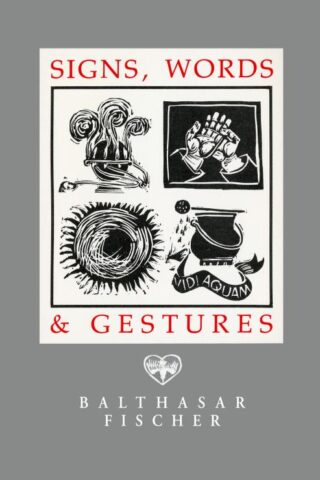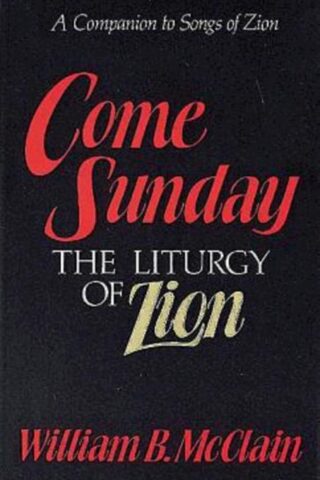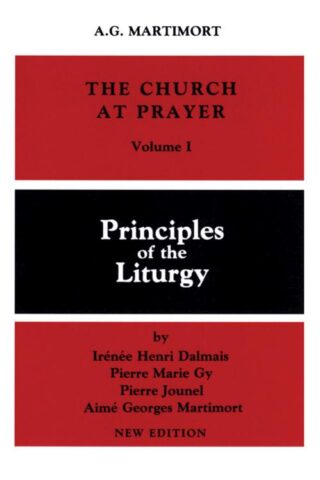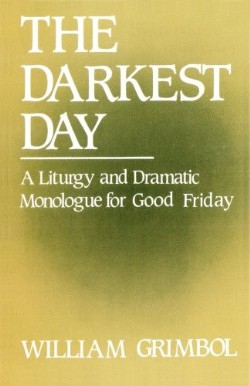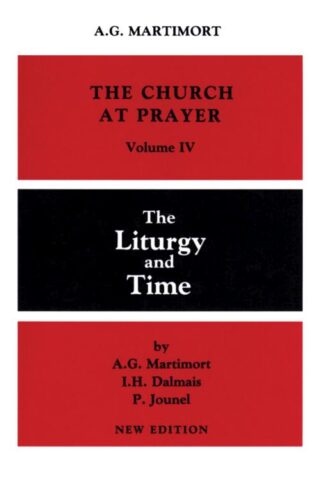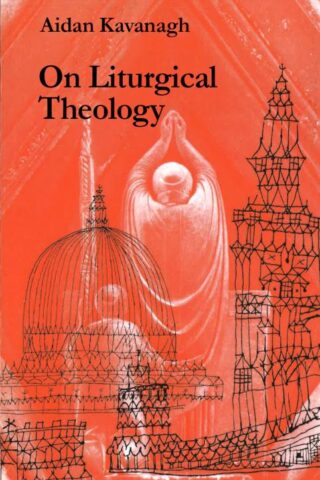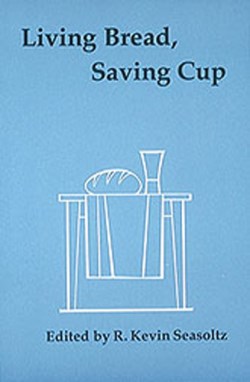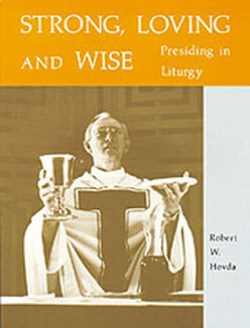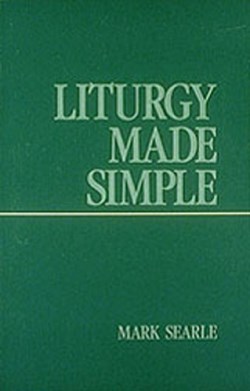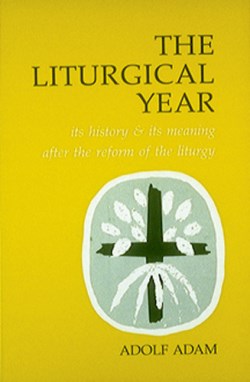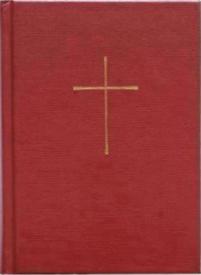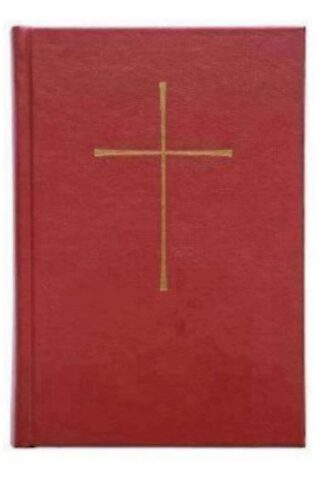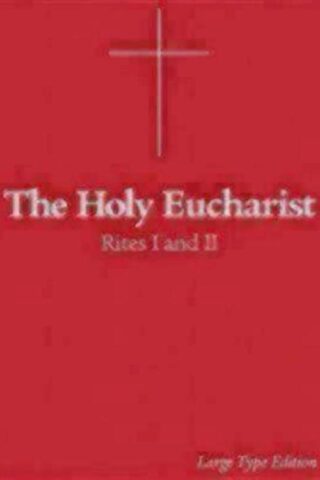Liturgy
Showing 201–242 of 242 resultsSorted by latest
-
Let Justice Sing
$15.95Add to cartJustice has been an urgent concern of twentieth-century hymn writers, but are they the first to place such an emphasis on it? In Let Justice Sing, Paul Westermeyer offers an answer with the hope that it will stimulate dialogue, future studies, and an understanding of the past that can be applied to the present.
Let Justice Sing explores the content, context, and importance of justice within the “warp and woof” of hymnody. By analyzing these aspects and past hymnic repertoires, it suggests to the Church and others who wish to join the moral deliberation it presumes, that not only have Christians always sung about justice, but the message transcends the messengers.
The perspective and dialogue fostered by Let Justice Sing is directed to students in college or seminary courses where hymnody, Church music, or ethics is the topic; adults in forums or classes where questions about music and justice arise; and anyone with an interest in hymnody, justice, or the relationship between the two.
-
History Of Liturgical Books
$39.95Add to cartThe history of liturgy and liturgical books is of interest not only for theologians and liturgists but also for historians, art historians, archaeologists, anthropologists, and researchers in religious sciences. This work meets the interdisciplinary need for a history and a typology of liturgical books.
A History of Liturgical Books from the Beginning to the Thirteenth Century is an introduction to Western liturgical sources and a synthesis of their history for more than a millennium. It provides a historiographic summary, examines the relationship between medieval history and liturgy, suggests new methods of research, and underscores the fruitfulness of an interdisciplinary approach.
Focusing on the history of liturgical books, rather than the history of liturgy, A History of Liturgical Books from the Beginning to the Thirteenth Century devotes a detailed chapter to each type of book intended for a specific celebration-Mass, Office, rites-and a specific presider-pope, bishop, deacon, monastic, etc. The crucial transition from oral practice to the use of the written document is discussed in every case, as is the illustration of liturgical books.
-
Unread Vision : The Liturgical Movement In The United States Of America 192
$39.95Add to cartThe Second Vatican Council changed the practice of liturgy. Conciliar developments, however, did not emerge in a vacuum; they were the result of years of hard work that involved thousands of people across the United States and the world.
As a social history of the liturgical movement, The Unread Vision introduces readers to the movement’s pioneers and promoters and to the issues that emerged from the movement in the U.S. in the years 1926-1955. The Unread Vision explores the foundational years of the movement and its major themes and discusses how the movement, its goals and principles, was received by the broader community of American Catholics.
-
Sunday Lectionary : Ritual Word Paschal Shape
$24.95Add to cartThe Sunday Lectionary examines a key aspect of the liturgical use of the Bible: how the Lectionary puts biblical flesh on the bones of the liturgical calendar and gives paschal shape to the Christian year. Although the current Lectionary has been in use since 1969, its history, purpose, and structure remains relatively unknown to the many who proclaim or hear its readings. The Sunday Lectionary contributes to a theology of proclamation by explaining the principles that underlie the Lectionary’s selection of biblical passages and its patterns of reading distribution that structure the Sundays, feast days, and seasons of the liturgical year.
The book is divided into two parts. The first lays the groundwork by surveying the history of the Lectionaries (chapter 1), chronicling the highlights of the Vatican II Lectionary reform (chapter 2), and examining the characteristic traits of the revised Sunday and feast day Lectionary and its ecumenical import (chapter 3). The second part analyzes the Lectionary’s architecture for each of the liturgical seasons (chapters 4-9).
Liturgical proclamation breathes life into the ancient inscribed words, transforming them from words into the Word, thus bringing the transforming, nourishing presence of the risen Christ into the world. The Sunday Lectionary not only helps enrich theological conversation but helps pastors, homilists, worship leaders, rectors, cantors, and students of liturgy foster a deeper appreciation of the Lectionary and, through the Lectionary, the liturgy.
-
Introduction To The Liturgy
$99.95Add to cartThe Handbook for Liturgical Studies provides a complete course of liturgical studies in five volumes. It is offered as a model, source, and reference for students of liturgy and liturgical ministry.
The Handbook for Liturgical Studies is marked by the following traits which differentiate it from its predecessor Anamnesis, published by the Pontifical Liturgical Institute. First, the subjects in the liturgical ordo, history, and tradition are examined as sources and components of the theology of liturgy. Next, the Handbook pays significant attention to the role played by the human sciences in the liturgy (psycho-sociology, anthropology, linguistics, and the arts.) Pastoral and spiritual considerations receive appropriate treatment in light of liturgical principles, and general models based on the meaning and purpose of the liturgy are suggested. Finally, the materials of the East and the non-Roman West are integrated with the Roman, providing a comprehensive vision of Christian worship.
The editor’s goal through these volumes is for students to pay attention to the gradual unfolding of the material from Volume One to Volume Five as well as to the methodology, historical setting, theological and spiritual doctrines, and the pastoral concerns in the Handbook. Through the study of these volumes, readers are led not only to a scientific understanding of the liturgy but also to an active and spiritually fruitful participation in the ecclesial celebration of Christ’s mystery desired by the Second Vatican Council.
-
Worship As Body Language
$39.95Add to cartWorship sets an assembly in motion movement towards God in response to God’s movement towards humans thus creating a resilient and caring community. Worship as Body Language brings the African community’s experience of the body and its gestures together with the Christian liturgy, since worship and social action are closely related.
The “body language” or gestures of praise, adoration, contemplation, ritual dance, and care of the neighbor are meaningful to the ethnic group; African Christians tune into these body motions to express the one Christian faith. In Worship as Body Language, Father Uzukwu details how patterns of African ritual assemblies and sacred narratives have merged with Jewish, gospel, and early Church traditions to create living Christian communities and liturgies.
Using a socio-historical method, this book sheds new light on liturgical action and theology, and suggests more transition rituals. It also provides samples of emergent African Christian liturgies that emphasize intense community participation with appropriate gestures. These local liturgies attest to the patristic principle that different customs actually confirm the unity of our faith in Christ. Scholars teaching and researching the foundations of the liturgy and liturgical inculturation, graduate students, and those organizing workshops on the regional, diocesan, or parish level will find Worship as Body Language a ready handbook on the liturgy. It is also a useful textbook for introducing college students and seminarians to the anthropological, historical, and theological dimensions of the liturgy.
-
Visions Of Liturgy And Music For A New Century
$29.95Add to cartWhat is the future of liturgical song? The answer to that question, says Lucien Deiss, depends upon the development of the liturgy itself and our search for better ways to spread the gospel.
Drawing on the riches of the past to guide that search, Father Deiss reflects on what is desirable today. Making the ministerial function of music and song his point of reference-and the key to all questions-he discusses every musical aspect, from processions, acclamations, and responsorial psalms, to hymns, the credo, and the cantillation of the readings. He outlines present-day practices, makes suggestions for improvement, and contributes sound, creative ideas for the future.
Using his broad historical and musical knowledge of the Church’s liturgy, Father Deiss takes us step-by-step through the Eucharistic celebration. He reflects not just on the liturgy’s repertoire of music and song, but also on the roles of those who participate in its formation: priest, choir, music liturgist, organist, cantor, and congregation.
-
Worship Come To Its Senses
$20.99Add to cartWhat makes Christian worship both true and relevant to ever-changing human circumstances? How can our gathering about the Scriptures, the Table of the Lord, and the waters of baptism shape and express authentic Christian faith in the world of everyday life? In this book, Don Saliers finds a fresh way of answering these questions by exploring four “senses” of God: awe, delight, truth, and hope. Why are wonderment, surprise, truthfulness, and expectancy so often missing or diminished in Christian liturgy today, whether Protestant or Roman Catholic, “high church” or “low church”, “traditional” or “contemporary”? These are essential qualities of both worship and life. Saliers contends that we are still restless for communion with God, and suggests how these essentials may be rediscovered by every worshiping congregation. At stake are the means of grace received from Christ, attested to in the Scriptures and shown in every faithful worshiping assembly.
-
Liturgical Language : Keeping It Metaphoric Making It Inclusive
$9.95Add to cart“Liturgical language” denotes those words used by Christians in their communal praise and prayer. Liturgical language is often metaphoric, as metaphors help us explain the unexplainable they help the human mind contemplate the divine. Problems with liturgical language occur when these metaphors exclude some Christians when their aim should instead be to bring all Christians into communion with God. Recognizing that both metaphoric and inclusive languages are necessary in Christian worship, Ramshaw clarifies how these need not be contradictory criteria for forming liturgical language.
Through a review of the history of language, Ramshaw illustrates the difficulties of forming texts from words that have undergone numerous translations and whose primary meanings have also changed throughout the centuries. An examination of trends in generic American English, the vernacular on which liturgical texts are to be built, reveals two tasks for liturgists: the arduous work of retranslating liturgical texts and the creative work of crafting intercessions, hymns, and homilies that are inclusive in language. Her discussion of symbolic imagery and theological language illustrates how essential it is that words be evaluated and chosen with understanding and care.
Ramshaw writes for those who find beauty and truth in metaphor and for those who strive to invite everyone to the Eucharistic banquet. She encourages all who formulate liturgical language to contemplate with seriousness and vision the ultimate objective of this language so that it can speak with meaning and beauty to all.
-
Liturgical Inculturation : Sacramentals Religiosity And Catechesis
$29.95Add to cartPerhaps nothing is as important to the future of the Church as continuing to make the liturgy meaningful to those who celebrate it. Inculturation, “the dynamic translation of the typical editions into the cultures of local Churches,” is the key.
Inculturation as a branch of liturgical study has a dauntingly wide scope. It covers the areas of history and theology, liturgical and cultural principles, process and methods, sacraments and sacramentals, Liturgy of the Hours, liturgical year, liturgical music, liturgical arts and furnishings, and such related topics as popular religiosity and catechesis. So where does the average pastor, liturgist, or student begin?
With this volume the reader is introduced to the different technical terms expressing the relationship between liturgy and culture (indigenization, incarnation, contextualization, adaptation, acculturation … ). The subsequent discussion on the question of sacramentals, popular religiosity, and liturgical catechesis explains how these disparate topics share the same basic concern of inculturation.
Throughout the book the focus is on method. Method encompasses both how one may remain true to the liturgy while also considering what culture offers the liturgy or requires of it. The question of how creativity relates to inculturation is also answered.
For the serious student of the liturgy, whether or not you serve a culturally diverse community, this work provides foundations, principles, and methods for creating a liturgy of the people and for the people.
-
Sunday Dismissals For The RCIA
$34.95Add to cartIf your parish has been hesitant to dismiss the candidates and catechumens from the Sunday liturgy for fear that they might feel excluded or rejected, these weekly dismissals erase that tension. The dismissals are clearly presented for what they are: “sendings.” Candidates and catechumens are sent from the liturgy to be nourished by the Scripture readings of the day.
Since the text for the catechumenate is the Lectionary, each dismissal is based on the readings of that particular Sunday. Using this tool, the parish community will understand why they are dismissing these individuals and will also experience the call to listen to and reflect on the Scriptures.
A prayer of the faithful, which links the Sunday readings to the dismissal, is also included each week so that the parish family may offer prayerful support to their candidates and catechumens. The readings used as a basis for the dismissal are referenced.
-
1928 Book Of Common Prayer
$41.99Add to cartA treasured resource for traditional Anglicans and other people who appreciate the majesty of King James-style language. This classic edition features a Presentation section containing certificates for the rites of Baptism, Confirmation, and Marriage. Burgundy hardcover binding, gold cross.
-
Sing A New Song
$29.95Add to cartThe Hebrew Scriptures relate many instances of the people of God breaking into song when they experience the presence of God in their lives. Where is that song of praise in the Christian’s life today?
The responsorial psalm of the Sunday liturgy both summarizes the Word of God for the day and invites the community to join, mind and spirit, in affirming their part in that Word. Many books have examined the readings of the Sunday Lectionary. Sing a New Song focuses on the psalms (1991 NAB translation), grouping them by genre, then considering each in its relationship to the set of readings it accompanies.
While the insights of scholarship are used, the intent of the work is to inspire more insightful and imaginative celebration of God’s Word. It will therefore be of service to those who preach the Word, those who plan the liturgy and provide music, and most of all to everyone who prays and is nourished by the Sunday readings.
-
Liturgy Of The Hours In East And West (Revised)
$49.95Add to cartThe origins and development of the Divine Office are traced through both Eastern and Western branches of the Church, providing a wealth of historical and liturgical information.
From the small beginnings of a few Christians in New Testament Jerusalem, the prayer of the Church spread, changing and evolving as it met and was assimilated by different cultures.
This classic study is a major resource for the liturgical scholar.
-
Lent
$34.95Add to cartThe Second Vatican Council accomplished the most important reform of the Church’s liturgy ever taken, while at the same time profoundly respecting its great tradition. The Council wanted to restore the great flow of the Church’s liturgical tradition. DAYS OF THE LORD is an excellent guide for understanding the riches of the Church’s liturgy. The commentaries, written by several different authors, go beyond the obvious meaning of the texts. They allow the texts to speak for themselves. It is the liturgy that enlivens Christian existence and transforms it. This book can be used as a tool to aid people to enter into the mystery of Christ and its unfolding in our time.
-
Easter Triduum Easter Season
$34.95Add to cartThe Second Vatican Council accomplished the most important reform of the Church’s liturgy ever taken, while at the same time profoundly respecting its great tradition. The Council wanted to restore the great flow of the Church’s liturgical tradition. This book is an excellent guide for understanding the riches of the Church’s liturgy. The commentaries, written by several different authors, go beyond the obvious meaning of the texts. They allow the texts to speak for themselves. It is the liturgy that enlivens Christian existence and transforms it. This book can be used as a tool to aid people to enter into the mystery of Christ and its unfolding in our time.
-
Byzantine Rite : A Short History
$19.95Add to cartMuch has been written regarding the western liturgy; the same cannot be said of the Byzantine liturgy. Father Taft contributes to a remedy of that shortfall through this work. In it he traces the origins of the Byzantine Rite during its period of formation: from its earliest recorded beginnings until the end of Byzantium (1453 c.e.). While the rite has undergone some change in the period since then, its outlines remain essentially the same.
The author writes from a lifetime of worship and scholarly research in the Byzantine liturgical tradition. This “Short History” of the originas and evolution of the Byzantine liturgical synthesis is the fruit of over 30 years’ immersion in the sources of its history and theology. -
Intercessions For The Christian People Cycle A B C
$34.95Add to cartFifty liturgical scholars-Roman Catholic, Episcopal, and Lutheran-have authored these intercessory prayers for each Sunday of the three-year cycle to expand the resources available to local pastors. The authors have been guided by the traditional pattern of prayers of the faithful. All language is inclusive.
-
Eastern Catholic Churches
$16.95Add to cartWith rising interest in Eastern churches, this volume is a timely and helpful exploration of the Eastern Catholic Church and its celebration of the eucharist. It is written in the hope that interested laity, theological students, and ministers may come to understand and respect Eastern Catholicism for its many contributions to the universal Catholic Church. Efforts to integrate its rich legacy into their own experience will be rewarded in ways unimagined.
-
Mass
$19.95Add to cart“The Eucharistic celebration is ‘the center of the Christian community,’ ‘the source and summit of the Christian life,’ or further, ‘the center and culmination of the entire life of the Christian community.’ Root, source, center, summit: the Eucharistic celebration is at the heart of our faith and our life. To study it is to look at its own heart. That is where we meet Jesus Christ, present in his Word, present in the Eucharist, present in the celebrating community.”
From these words of introduction to his concluding remarks, Father Deiss offers an explanation of the post-Vatican II Mass that is as remarkable for its simplicity as it is for its thoroughness. He examines the structure of the celebration as revealed by Vatican II, a structure that, in his words, appears now “simpler, more luminous, more beautiful” than ever before.
-
Origins Of The Liturgical Year (Reprinted)
$39.95Add to cartSecond Emended Edition
In this definitive work, Thomas Talley draws on all the resources of historical scholarship to examine and unravel the complications brought to liturgical time by the blending of local traditions.
Liturgical time, like all ecclesiastical structures, has interacted with other traditions since the early centuries. Yet Doctor Talley found that the gospel tradition and its liturgical employment shaped the period that comprises the liturgical year.
His findings illustrate for the reader that every festival the Church celebrates-very Sunday-is centered primarily and finally in the Eucharist, which from the beginning and always proclaims the Lord’s death until he comes.
-
Signs Words And Gestures
$16.95Add to cartThe substance underlying ordinary signs, words, and gestures in the liturgy is the theme of this collection of simple homilies offered to nurture Christians on their pilgrimage toward piety and spiritual life.
Through these texts every reader will rediscover additional strength in the elementary religious practices memorized during childhood. For the homilist, the traditional symbols and texts of worship are viewed with a fresh scrutiny. A separate section of homilies for children is included.
-
Inclusive Language In The Church
$22.00Add to cartINCLUSIVE LANGUAGE IN THE CHURCH is a good introduction to questions about language use today. Issues in the current debate are addressed fairly. This is not a battle cry for the feminist movement but rather a solid introduction to the whole discussion. Hardesty hopes to convince us that inclusive language is appropriate in Christian theology and worship. Nancy Hardesty maintains that the use of inclusive language goes to the very heart of the gospel. She examines biblical references to God, Jesus, the Holy Spirit, and human beings. From these she argues that God speaks through Scripture and shows how the metaphors for God and various descriptions of God speak to a variety of human needs.
-
Darkest Day
$7.95Add to cartThe centerpiece of this Good Friday worship service is the monologue, The Ghost of Judas. Designed to be presented by the pastor or any lay-person who can speak with a sense of drama, the monologue places Judas Iscariot at center stage on the day Christ died. His reflections on his own behavior, his remorse, and his deep sense of regret and self-examination lead the worshiping congregation to search their own souls, an appropriate activity on this most profound of all Christian days.
The monologue is sermon length. If not available in local hymnals, suggested hymns may be replaced by others more appropriate.
-
On Liturgical Theology
$29.95Add to cartNearly everything that theologians write on liturgy, Father Kavanagh notes, is often called liturgical theology, although on closer examination such works appear to be either dogmatic theologies about the liturgy or systematic theologies making use of liturgical data. None truly reflects how liturgy shapes theology or is theology or even relates to theology.
This work is Father Kavanagh’s effort to substantiate the existence of a truly liturgical theology. It will raise almost as many questions as it answers; but it will also further insight into theology and liturgy as it assays their relationship.
-
Living Bread Saving Cup (Expanded)
$29.95Add to cartThe articles on Eucharistic liturgy given here are reprinted from the pages of Worship magazine. This expanded edition of the 1982 printing includes three additional essays: “Justice and the Eucharist” by R. Kevin Seasoltz, O.S.B.; “Stipends and Eucharistic Praxis” by M. Francis Mannion; and “Stipends in the New Code of Canon Law” by John M. Huels, O.S.M.
-
Liturgical Year
$34.95Add to cartThe liturgical year emanates and derives its growth from the passion and resurrection of Christ. The present year enumerated in the Roman Calendar is the sum of the feasts that have found their set place in the annual cycle. For each of these feasts and the seasons Doctor Adam gives an individual historical-liturgical account. His basic aim is to explain the theological and spiritual substance of the liturgical year against the background of its historical development.
